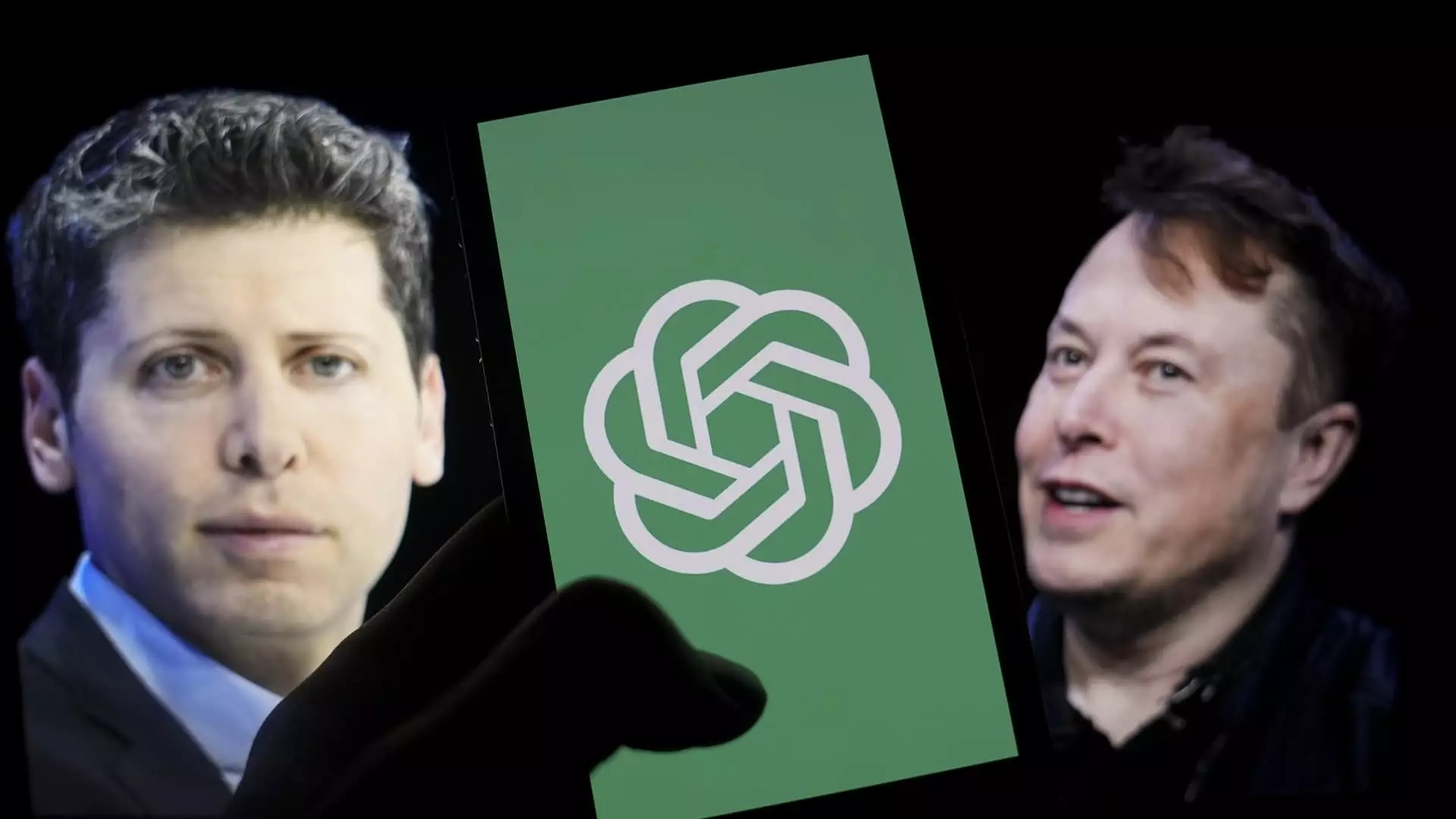The ongoing saga between Elon Musk and OpenAI has taken a dramatic turn, unveiling a multifaceted legal dispute that highlights the complexities of the artificial intelligence industry. Just recently, Musk initiated legal proceedings to prevent OpenAI from transitioning into a completely for-profit entity. This request includes claims that OpenAI has allegedly imposed restrictive conditions on its investors, preventing them from funding rival companies, including Musk’s own AI venture, xAI. Such allegations point to deeper implications about competition and the ethical concerns surrounding the direction of AI development.
The legal maneuvers began in March 2024, when Musk first filed a lawsuit against OpenAI in a San Francisco state court. However, a strategic shift led to the withdrawal of that complaint, which was subsequently filed in federal court. At the heart of Musk’s latest filing, spearheaded by attorney Marc Toberoff, is a charge that OpenAI may be engaging in practices that contravene federal racketeering laws, specifically the Racketeer Influenced and Corrupt Organizations Act (RICO). This move signifies not only Musk’s determination to challenge his former co-founder’s enterprise but also raises questions about the business practices within the AI sector.
Expanding their claim, Musk’s legal team has also accused both OpenAI and its mammoth financial backer Microsoft of infringing antitrust laws. The crux of their argument rests on the assertion that OpenAI has allegedly solicited investors to refrain from backing competitors, thereby creating an alleged “group boycott” that intentionally hinders xAI’s access to crucial investment resources. This complaint comes amidst growing scrutiny from regulatory bodies, including the Federal Trade Commission (FTC), which has initiated inquiries into potential monopolistic behaviors among major players in the AI market.
In an official response, OpenAI dismissed Musk’s claims as “baseless,” hinting at the extensive legal and competitive realities that the startup now faces. With the rapid evolution of the AI market, characterized by substantial financial investments and technological advancements, OpenAI has become a household name, notably with its ChatGPT application. The organization has indeed succeeded in capturing significant interest and investment, marking its growth against the backdrop of potential competition from Musk’s ventures, including xAI, which debuted in July 2023.
Musk’s xAI has quickly gained traction, developing its Grok chatbot and gearing up to secure up to $6 billion in funding at an estimated valuation of $50 billion. The aggressive funding strategy is likely designed to bolster xAI’s position against the corporate monoliths of AI, signaling a fight for dominance in an industry that is forecasted to exceed $1 trillion in revenue within the next decade. Observing this competitive landscape, attorneys for Musk emphasized that OpenAI’s recent activities could be perceived as an attempt to consolidate power by limiting investment opportunities for rival firms.
The Ethical Dimensions of AI and the Responsibility of Tech Giants
Beyond the legal implications, this unfolding drama raises critical ethical questions regarding the future of artificial intelligence and the responsibilities of its leading developers. OpenAI, which began as a nonprofit entity, has evolved into a hybrid model consisting of a capped-profit system and a proposed transition to a full for-profit corporation. This shift, intended to attract larger investments, poses important questions about the ethical boundaries regarding profit motives in technology that has profound societal implications.
Musk’s escalated legal battle and the allegations of undue influence from corporate investors like Microsoft highlight a potential ethical dilemma where the focus on financial viability overshadows moral considerations in AI deployment. As AI systems become more integrated into daily life, the potential misuse of technology becomes a more pressing concern, leading to increased calls for transparency, fairness, and accountability among industry players.
The ongoing legal tussle between Elon Musk and OpenAI exemplifies the volatility and competitive nature of the artificial intelligence landscape today. It raises critical discussions not only about market practices but also about the ethical obligations that accompany the rapid development of technology. As the AI sector braces for continuous evolution, a careful equilibrium must be established to foster competition while safeguarding ethical standards. The resolution of this conflict will undoubtedly shape the future of AI, influencing how technology develops and is ultimately leveraged for societal benefit. In this rapidly changing environment, the actions of players involved will resonate with implications that extend far beyond court rulings, highlighting the intricate balance between innovation, ethics, and profit in the world of artificial intelligence.


Leave a Reply